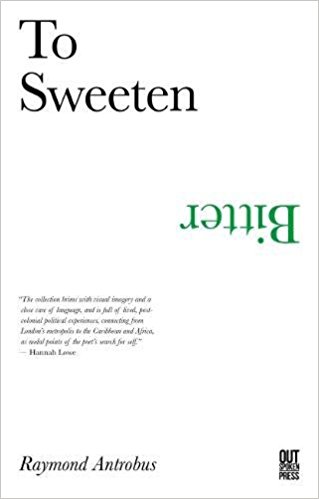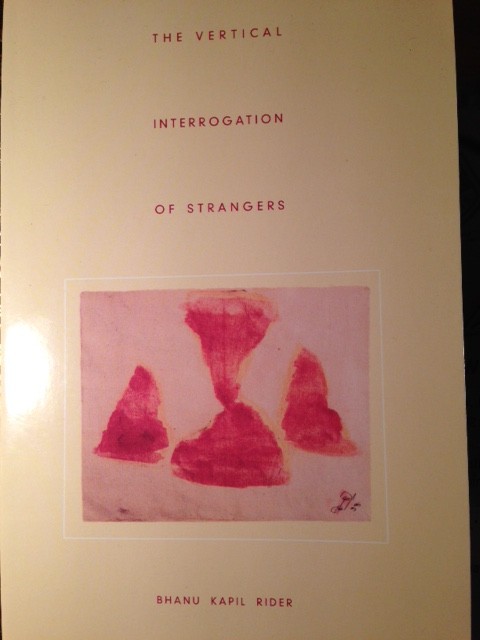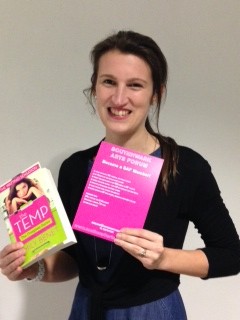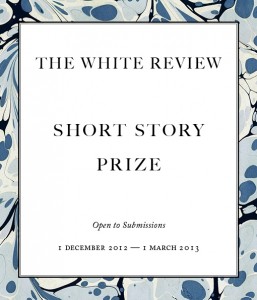Sarala Estruch Vahni, thank you so much for agreeing to this interview. I am so excited to talk to you about your new collection, Venus as a Bear, which I thoroughly enjoyed. I particularly loved how you brought animals, objects and ‘things’ to life in this collection, giving ‘voice to the voiceless’ in a more literal way than we usually mean when we use that expression. Can you tell me a bit about this? What drove you to write about ‘things’ in this way?
Vahni Capildeo The drama between an ‘I’ and a ‘you’ in poetry is always accompanied by the drama between an ‘I’ and an ‘it’, or an ‘us’ and a ‘that’. Even in an intense love lyric or solipsistic monologue, human speakers often call on, or decry, the non-human elements of their environment: stars, aeroplanes, grains of sand, guns. I became fascinated with the notion of these elements deserving and having poems of their own. Personally, I also experience non-human animals, objects, and places as having overwhelming vibrancy; they are compelling and unknowable.
SE I also felt that many of these poems contained political messages, particularly about those who are silenced – I am thinking especially of ‘Novena Body Parts’. Can you tell me more about the thinking behind this poem in particular?
VC It’s interesting you say that. Utter, my 2013 book from Peepal Tree Press, does contain many such messages; for example, ‘Creative Writing Lessons’ was written with the international media responses to Venezuela in mind, while another poem ostensibly about crabs and hibiscus was about the government then in power in Trinidad and Tobago. If such messages continue in Venus as a Bear it’s because they are part of my way of thinking – a credit perhaps to the ongoing effects of being trained up at Commonwealth Writers (where I worked briefly) as their focus is on ‘lesser heard voices’. Venus as a Bear really was just trying to be about ‘things’. However, ‘Novena Body Parts’ is a reworking by erasure, repetition and rearrangement of words and phrases from a sequence by Loretta Collins Klobah, in her debut collection The Twelve-foot Neon Woman. This reworking represents my part of a collaboration with Alys Conran for the AHRC-funded ‘Expanded Translation’ project. Our full collaboration appears in Poetry Wales. It’s likely that my focus on ‘translating’ Loretta, whose eco-feminist poetry is strongly grounded in Puerto Rico, allowed me to channel some of her preoccupations, which certainly are to do with the gendered and geographical silencing of voice and place.
SE The second section of your book includes extensive use of ekphrasis. This was interesting to me, because I felt that many of your poems were like paintings (or sculptures) themselves. Several of your poems also explore how words can be inadequate, for instance ‘Day, with Hawk’. Can you tell me about the process of ekphrastic writing for you, and the significance of these poems to you?
VC Ekphrastic writing for me requires time in which, through open and careful attention, I become imbued with what will go into the poem. It is not a descriptive process, but an attempt to respond by making something new and different yet of an equivalent complexity and with a kindred quality. I like the ancient approach to ekphrasis, which takes in a building, ritual, procession etc. rather than static works of art. The significance of these poems for me is that readers can in most cases visit what occasioned them, and explore their own responses. The poems are not memorials or definitions. They are lover’s tributes to the vibrancy of it-ness.
SE In the collection, many of the poems are dedicated to fellow writers/friends. Is the book a kind of conversation across space and borders and aesthetics/creative imagination?
VC Thank you for noticing that dedications can work as a conversation! Certainly in my earlier books, this was true. In Venus as a Bear, the dedications are a little different. During my transition from Cambridge to the North and Scotland, I ‘depended on the kindness’ not of strangers, but friends. Sometimes I wrote a poem as a gift or made a poem into a gift, as a still-inadequate but real way of expressing gratitude for their care and understanding which made it possible for me to live and write. In all my books, the dedications and acknowledgements also record people who had a strong impact on the ‘history’ of the book, strong enough to bend and break what I could do, think, or write, whether that impact was positive or negative.
SE How did you feel writing this book after Measures of Expatriation? How is it different/similar to you? And how do you feel about how books link up/connect with each other?
VC In fact I wrote a good deal of this book while writing Measures of Expatriation. In many ways, it was the book I wanted to be writing instead. Measures of Expatriation plays out the arguments that arise from tense relations with ‘the world’: approach/alienation, being both ‘wanted’ and ‘disowned’, to quote one of Nicholas Laughlin’s poems. Venus as a Bear steps past or through argumentation. It is more ‘being’ than ‘doing’.
Venus as a Bear is published by Carcanet, and was shortlisted for this year’s Forward Prize for Best Collection.
Sarala Estruch is a freelance writer, poet and critic. Her poetry, fiction, creative non-fiction and reviews have appeared in Wasafiri, Mslexia, and The Guardian, among others. She was a winner of the 2017 Poetry School/Nine Arches Press Primers mentorship and publication scheme, and a pamphlet-length collection of her work appears in Primers Volume 3 published earlier this year. Sarala is also a Ledbury Poetry Critic, an innovative mentorship programme designed to redress the diversity imbalance in UK poetry reviewing culture.
This interview was originally commissioned by Mslexia. Excerpts have been previously published in Mslexia, Issue 78.






 So I finally got round to reading the winning story of The White Review’s short story competition (2013), ‘The Lady of the House’ by Claire-Louise Bennett and it is so fantastic I simply had to write about it.
So I finally got round to reading the winning story of The White Review’s short story competition (2013), ‘The Lady of the House’ by Claire-Louise Bennett and it is so fantastic I simply had to write about it.